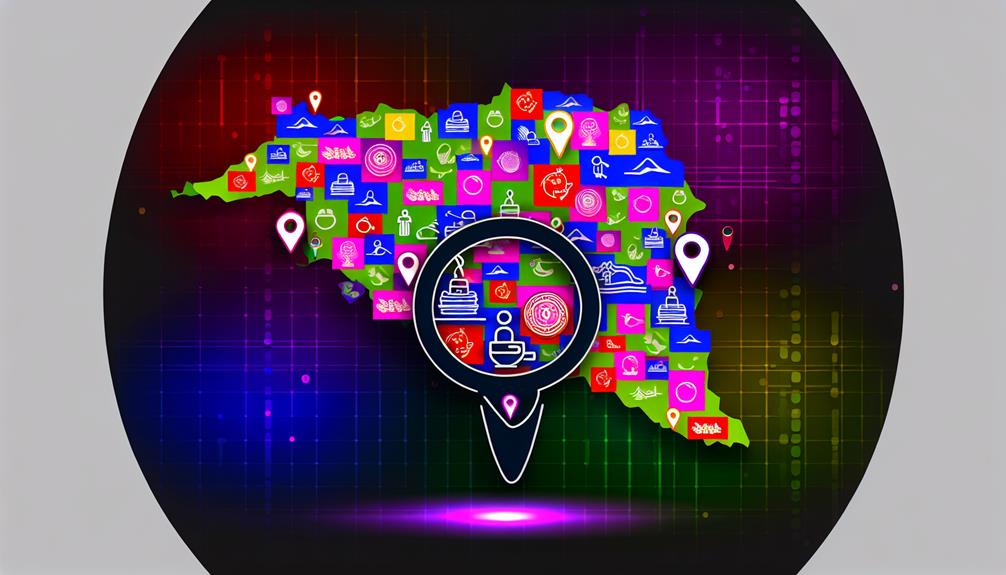In the ever-evolving landscape of digital marketing, businesses aiming to capture local markets must adopt geo-targeted SEO strategies to enhance their regional presence. By focusing on optimizing local keywords, leveraging regional backlinks, and creating location-specific content, companies can significantly improve their search engine rankings within targeted areas. These strategies not only help in aligning digital efforts with regional consumer behavior but also in establishing a strong local brand identity. Yet, how can businesses effectively implement these tactics to ensure optimal results? The intricacies of each strategy hold the key to unlocking regional SEO success.
Optimize Local Keywords
Optimizing local keywords is a critical component of geo-targeted SEO strategies, designed to enhance a business's visibility in specific geographic locations. This targeted approach involves the integration of location-specific terms into a website's content, ensuring that search engines can effectively associate the business with its desired area.
By doing so, businesses can attract local customers who are actively seeking their products or services, thus increasing foot traffic and potential sales.
To begin optimizing local keywords, it's essential to conduct thorough keyword research with tools like Google Keyword Planner or SEMrush. This process involves identifying the search terms your target audience uses when looking for businesses in your locality.
Focus on long-tail keywords that include city names, neighborhoods, or even colloquial terms specific to the region. For example, a bakery in Boston might use "best Boston bakery" or "fresh bread Back Bay" to capture local search interest.
Incorporating these keywords into your website's on-page elements, such as meta tags, headers, and content, is vital. However, maintaining a natural and reader-friendly tone is crucial to avoid keyword stuffing, which search engines penalize.
Additionally, local keywords should be integrated into Google My Business listings, ensuring that your business appears in local search results and on Google Maps.
Leverage Regional Backlinks
Building on the foundation of optimized local keywords, businesses can enhance their geo-targeted SEO strategies by leveraging regional backlinks. Regional backlinks are links from local or region-specific websites that point to your site, establishing credibility and trustworthiness within the local digital ecosystem. They serve as powerful endorsements, signaling to search engines that your business is a relevant and authoritative presence in a specific geographical area.
To effectively utilize regional backlinks, businesses should focus on forming partnerships with local organizations, such as chambers of commerce, local news sites, and regional industry associations. Ensuring backlinks from these reputable sources can significantly bolster a business's visibility and authority in the local market.
Additionally, collaborating with local influencers or bloggers who possess a strong regional following can also yield valuable backlinks, further cementing a business's standing within the community.
Another effective approach is to engage in community events or sponsorships. By participating in local initiatives, businesses can often secure backlinks from event websites or partner organizations. This not only aids in backlink acquisition but also enhances community engagement and brand recognition.
Furthermore, it is essential to conduct regular audits of your backlink profile to identify and disavow any harmful or irrelevant links that may negatively impact your local SEO efforts. Employing tools such as Google Search Console or third-party SEO tools can provide insights into the quality and relevance of your backlinks, enabling businesses to refine their strategies effectively.
Create Location-Specific Content

Crafting location-specific content is a pivotal component of a successful geo-targeted SEO strategy, as it directly addresses the unique interests and needs of a local audience. By tailoring content to reflect the locality's culture, events, and specific consumer preferences, businesses can significantly enhance their visibility in regional search results. This targeted approach not only resonates with local users but also signals to search engines that the business is a relevant and authoritative source within the specified region.
To effectively create location-specific content, businesses should begin by conducting thorough research to understand the local demographic. This includes identifying popular local events, understanding cultural nuances, and recognizing regional dialects or slang that can be incorporated into the content. Utilizing local keywords, such as city names or regional landmarks, within blog posts, landing pages, and metadata can further optimize content for local searches.
Additionally, businesses can leverage user-generated content, such as local reviews and testimonials, to reinforce their regional relevance. Highlighting customer stories or case studies that showcase how a product or service has positively impacted local consumers can build trust and credibility. Collaborating with local influencers or businesses for content creation can also enhance visibility and establish a connection with the local community.
Furthermore, maintaining a consistent presence on local social media platforms and engaging with community groups can amplify the reach of location-specific content. By focusing on localized narratives and addressing local issues, businesses can foster a sense of community, encouraging user interaction and engagement, thereby strengthening their local SEO efforts.
Conclusion
In summary, implementing geo-targeted SEO strategies can significantly enhance local visibility and engagement. The optimization of local keywords ensures that search engines associate the website with relevant regional searches. Establishing partnerships with local organizations for regional backlinks increases credibility and authority in the area. Creating location-specific content tailored to local demographics fosters community engagement and attracts local customers. These strategies collectively improve search rankings and strengthen the connection between businesses and their regional audiences.


Leave a Reply